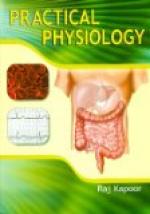One of the most frequent causes of decay of the teeth is the retention of fragments of food between and around them. The warmth and moisture of the mouth make these matters decompose quickly. The acid thus generated attacks the enamel of the teeth, causing decay of the dentine. Decayed teeth are often the cause of an offensive breath and a foul stomach.
[Illustration: Fig. 64.—Lymphatics on the Inside of the Right Hand.]
To keep the teeth clean and wholesome, they should be thoroughly cleansed at bedtime and in the morning with a soft brush and warm water. Castile soap, and some prepared tooth-powder without grit, should be used, and the brush should be applied on both sides of the teeth.
The enamel, once broken through, is never renewed. The tooth decays, slowly but surely: hence we must guard against certain habits which injure the enamel, as picking the teeth with pins and needles. We should never crack nuts, crush hard candy, or bite off stout thread with the teeth. Stiff tooth-brushes, gritty and cheap tooth-powders, and hot food and drink, often injure the enamel.
To remove fragments of food which have lodged between adjacent teeth, a quill or wooden toothpick should be used. Even better than these is the use of surgeon’s floss, or silk, which when drawn between the teeth, effectually dislodges retained particles. If the teeth are not regularly cleansed they become discolored, and a hard coating known as tartar accumulates on them and tends to loosen them. It is said that after the age of thirty more teeth are lost from this deposit than from all other causes combined. In fact decay and tartar are the two great agents that furnish work for the dentist.[26]
169. Hints about Saving Teeth. We should exercise the greatest care in saving the teeth. The last resort of all is to lose a tooth by extraction. The skilled dentist will save almost anything in the shape of a tooth.
People are often urged and consent to have a number of teeth extracted which, with but little trouble and expense, might be kept and do good service for years. The object is to replace the teeth with an artificial set. Very few plates, either partial or entire, are worn with real comfort. They should always be removed before going to sleep, as there is danger of their being swallowed.
The great majority of drugs have no injurious effect upon the teeth. Some medicines, however, must be used with great care. The acids used in the tincture of iron have a great affinity for the lime salts of the teeth. As this form of iron is often used, it is not unusual to see teeth very badly stained or decayed from the effects of this drug. The acid used in the liquid preparations of quinine may destroy the teeth in a comparatively short time. After taking such medicines the mouth should be thoroughly rinsed with a weak solution of common soda, and the teeth cleansed.




